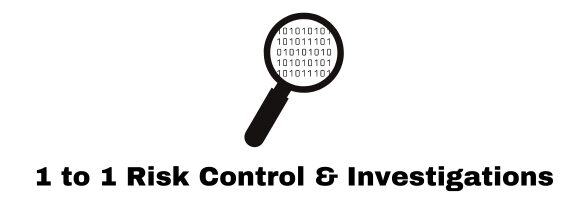405-458-5710
Confidentiality Guaranteed
405-458-5710
Confidentiality Guaranteed
You are Reading:
-
1 to 1 Risk Control & Investigations > Blog > GPS Tracking > Effective GPS and Cell Phone Tracking Countermeasures

Jul
Effective GPS and Cell Phone Tracking Countermeasures
Understanding the Risks: With advancements in technology, GPS and cell phone tracking have become common tools for surveillance and tracking. While these technologies offer significant benefits, they also pose privacy and security risks. Understanding these risks is the first step in protecting yourself from unauthorized tracking and ensuring your privacy.
GPS Tracking Countermeasures: GPS tracking devices are often used to monitor the location of vehicles, individuals, and assets. To counteract unauthorized GPS tracking, consider the following measures:
Regular Inspections: Regularly inspecting your vehicle for hidden GPS tracking devices is crucial. Check common hiding spots, such as under the car, inside the dashboard, or within the wheel wells. Using a GPS detector can help locate any hidden devices and ensure your vehicle is free from unauthorized tracking.
GPS Spoofing: GPS spoofing involves sending false GPS signals to confuse tracking devices. By creating a fake location, GPS spoofing can mislead trackers and protect your true location. While this method can be effective, it requires technical knowledge and sophisticated equipment.
Cell Phone Tracking Countermeasures: Cell phone tracking involves monitoring the location, calls, messages, and internet activity of a mobile device. To counteract unauthorized cell phone tracking, consider the following measures:
Disable Location Services: Turning off location services on your cell phone can prevent apps and services from accessing your location data. This is a simple and effective way to limit tracking, though it may impact the functionality of certain apps that rely on location information.
Use Airplane Mode: Enabling airplane mode on your cell phone disables all wireless communications, including GPS, Wi-Fi, and cellular signals. This prevents tracking and ensures your location remains private. However, it also means you won’t be able to make calls, send messages, or access the internet.
Install Anti-Tracking Apps: There are various anti-tracking apps available that can help protect your cell phone from unauthorized tracking. These apps detect and block tracking attempts, providing an additional layer of security. Some apps also offer features like encrypted messaging and secure browsing.
Use a Faraday Bag: A Faraday bag is a specially designed pouch that blocks all wireless signals. Placing your cell phone in a Faraday bag prevents any tracking or communication attempts, ensuring your location and data remain secure. This is a highly effective method, but it also means your phone won’t be usable while in the bag.
Regular Software Updates: Keeping your cell phone’s software up to date is crucial for security. Software updates often include patches for vulnerabilities that could be exploited for tracking. Ensure your device is running the latest operating system and regularly update your apps.
Be Cautious with Apps and Permissions: Be mindful of the apps you install and the permissions you grant them. Some apps may request access to your location, contacts, and other sensitive information. Only install apps from trusted sources and carefully review their permissions to prevent unauthorized tracking.
Encryption and Secure Communication: Encrypting your communications can protect your data from unauthorized access. Use encrypted messaging apps and enable encryption features on your device to ensure your calls, messages, and data remain private. This adds an extra layer of security and helps protect against tracking and surveillance.
Awareness and Vigilance: Staying informed about the latest tracking technologies and countermeasures is essential for maintaining your privacy. Regularly review your device’s settings, stay updated on new security features, and be vigilant about any suspicious activity. Awareness and proactive measures are key to protecting yourself from unauthorized tracking.
Legal and Ethical Considerations: While taking steps to protect your privacy is important, it’s also essential to consider the legal and ethical implications of your actions. Some countermeasures, like GPS jammers, may be illegal in certain jurisdictions. Ensure you comply with local laws and regulations while implementing tracking countermeasures. Additionally, consider the ethical implications of your actions and strive to balance privacy with respect for others’ rights and safety.
Consulting Professionals: If you suspect unauthorized tracking or need assistance implementing countermeasures, consulting with professionals can be beneficial. Private investigators, cybersecurity experts, and legal advisors can provide guidance and help you navigate the complexities of tracking countermeasures. Their expertise can ensure you take appropriate and effective actions to protect your privacy.
In conclusion, protecting yourself from GPS and cell phone tracking requires a combination of technical knowledge, practical measures, and ongoing vigilance. By understanding the risks, implementing countermeasures, and staying informed about the latest technologies, you can safeguard your privacy and maintain control over your personal information. Whether you’re concerned about unauthorized tracking by individuals, organizations, or government entities, these strategies can help you stay one step ahead and protect your privacy in an increasingly connected world.
- AI
- Bug Sweeps
- Car Security
- Cyber Crime
- Cyber-Stalking
- Digital Forensics
- Fraud
- Geo-Political
- GPS Tracking
- Hidden Cameras
- Identity Theft
- Investigations
- Misinformation
- Mobile Device Forensics
- Mobile Device Security
- Operational Security
- Privacy
- Psychology
- Situational Awareness
- Social Media Investigations
- Stalking
- Surveillance
- Uncategorized
